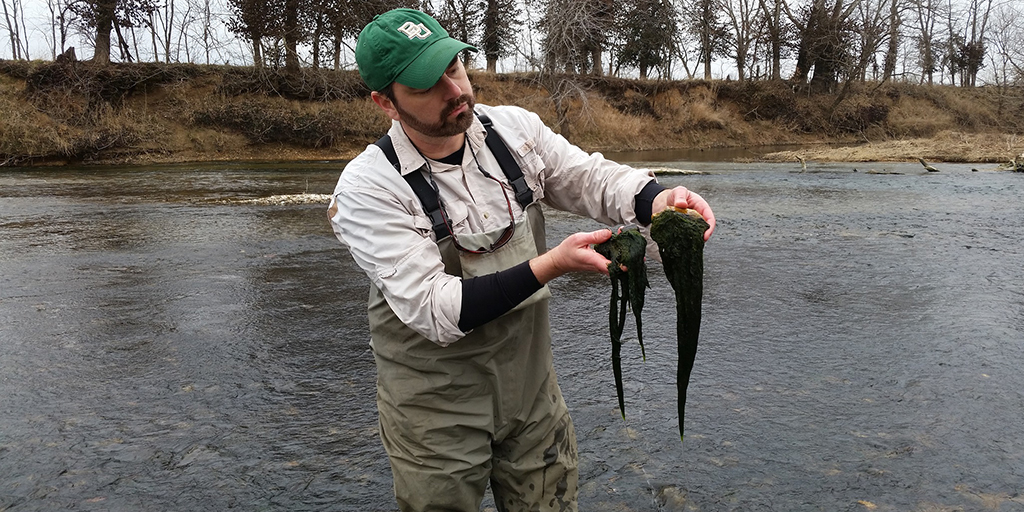Baylor biology prof’s research helps end 30-year Oklahoma-Arkansas feud

Imagine you’ve had a clean, clear river or creek running through your backyard for years — then one day, you notice the water isn’t as bright as it used to be. Algae is growing, fish are less plentiful, and your creek is getting cloudy. A little investigative work suggests the culprit is your upstream neighbor, through whose property the creek also runs. It flows from his land to yours, meaning you’re at the mercy of his standards of cleanliness. So, you walk next door to discuss taking better care of the water.
That’s the core of a long-running dispute between the states of Oklahoma and Arkansas that had carried on for more than three decades — until a Baylor biology professor’s work was able to help both sides finally come to an agreement just last month.
Here’s the backstory: In Eastern Oklahoma, six rivers are designated as “scenic rivers,” and as such, are subject to special preservation and conservation efforts by the state. Five of the six rivers’ headwaters are in Arkansas, and Oklahoma complained that their neighbor to the east was allowing too much phosphorus from municipal wastewater and agricultural runoff in their rivers. Phosphorus (while not harmful to humans) can promote algae growth, impact fish and other aquatic life, and turn clear water cloudy.
The states began arguing over the situation in the mid 1980s, and not even a 1992 Supreme Court ruling (which said that upstream states were indeed responsible for the water quality of states downstream) was able to fully put the issue to rest. Continued litigation prompted both states to look for a final solution — a trusted expert who could deliver non-biased scientific evidence on acceptable phosphorus levels that both states would accept.
That’s where Baylor comes in. In 2014, a six-member committee appointed by both states’ governors chose a Baylor team, led by Dr. Ryan King, to conduct the necessary study. King and his team of seven other Baylor professors and students were charged with determining an acceptable phosphorus water-quality standard by which Arkansas and Oklahoma would both have to abide.
For three years, the Baylor group made bi-monthly trips to both states, collecting water samples at dozens of locations on both sides of the border to measure algae and phosphorus levels. Late last year, King presented a comprehensive analysis that led to a unanimous agreement on an acceptable level of phosphorus in the water, and just like that, a 30-year feud had been put to rest — thanks to Baylor research.
For a researcher like King, the chance to see real, immediate policy change through research was a rare and exciting opportunity.
“So much of my research is about informing policy, but it can often get muddied up by politics,” King says. “But here, at the end of our work, we could see this implemented as a real number. Our entire team worked extraordinarily hard, and I’m thankful that we could do this important work.”
Sic ’em, Dr. King!

